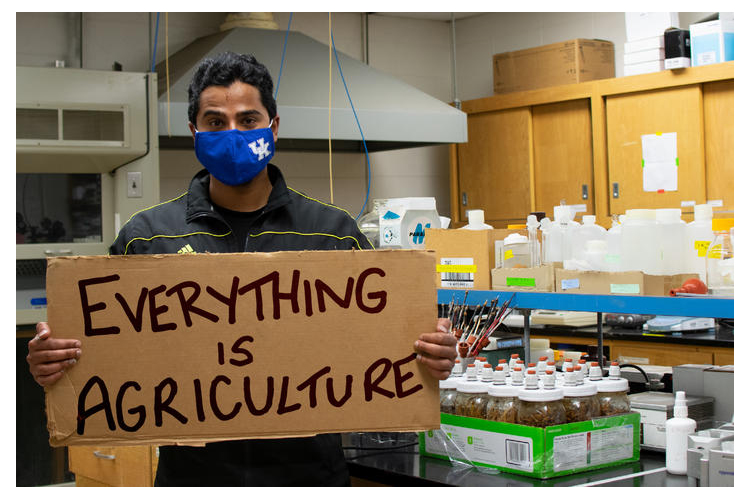UK to Celebrate National Agriculture Week
UK to Celebrate National Agriculture Week

Cows and plows are often top-of-mind when agriculture is the topic of conversation. While livestock and crop production remain the backbone of the industry, supporters of the upcoming National Agriculture Week hope to expand the conversation and highlight the complex systems that feed, fuel and clothe the world.
“In Kentucky there are about 50,000 direct jobs on farms or for timber production. But there are over a quarter million jobs in Kentucky that depend on those farms or forests,” said Nancy Cox, vice president for land-grant engagement and dean of the University of Kentucky College of Agriculture, Food and Environment (CAFE). “Think about food processing and transportation to feed people 24 hours a day, seven days a week, 365 days a year. Consumers can take for granted the accessibility of food. But last year COVID-19 disrupted food supply chains, greatly reducing availability of many foods as well as other products.”
CAFE wants to ensure no one takes agriculture for granted.
From March 22 to March 27, the college is promoting a number of ag-related events for UK students, staff, faculty and the public. The lineup includes a free take-home planting event, a pre-veterinary medicine open house, Lexington Farmer’s Market giveaways and much more.
In addition to virtual and socially distant events, the week will also promote daily social media themes to engage the public using the hashtag #UKYagweek. For those joining the conversation online, CAFE will share daily giveaways in hope that many across the state will learn more about the unknown facets of agriculture.
“I believe the biggest misconception facing the ag industry is that the process is very over-simplified to the public,” said Maddie Varias, a natural resources and environmental science student. “There are many factors involved in the science of agriculture, including soil science, engineering of farming technology, and innovative business strategies. If the public does not understand the complexity of the ag industry, the push for funding ag education will be very minimal.”
The week will also highlight the university’s Virtual Education Career Fair, underscoring the high demand for agriculture teachers, environmental educators, school nutritionists, and other ag-related roles in K-12 school systems.
“The future is bright for people to work in jobs tied to agriculture. Food processing, chemistry, engineering, artificial intelligence and many more jobs will be plentiful,” Cox said. “It should be noted that less than 2% of the U.S. population farms, but we are seeing more farms geared to local markets as well as more women farmers joining the ranks.”
Although only 2% of Americans farm, 100% of Americans rely on the food, energy and clothing created through agricultural systems and industries.
To see the complete lineup of #UKYagweek events, visit http://students.ca.uky.edu/ukyagweek.
Events

